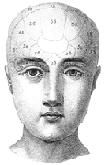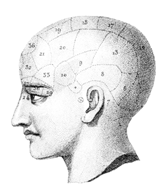WE ASKED SIX EXPERTS TO RECOMMEND THE BEST RECENT BOOKS ABOUT INTELLECTUAL PROPERTY IN A DIGITAL ERA
Andrew L. Shapiro, fellow at the Brennan Center for Justice at New York University Law School and author of The Control Revolution: How New Technology Is Putting Individuals in Charge and Changing the World We Know(PublicAffairs/The Century Foundation, 1999 [www.controlrevolution.com]).
"Faced with the Internet's ability to be a giant copying machine, the publishing, music, and software industries are frantically trying to preserve control over their creative product. While some of this effort is legitimate, already there are signs that these culture brokers are trying to secure more protection—and profit—than traditional intellectual- property law would give them. Lawrence Lessig's Code and Other Laws of Cyberspace (Basic, forthcoming) is an indispensable guide to the new battles between technology and constitutional principles. Lessig, a pioneering cyberlaw scholar, explains how the familiar legal terrain of statutes and common law is giving way to a new form of private lawmaking through computer code. Though code regulation increasingly structures our social, political, and commercial life, Lessig warns that we haven't developed the tools—transparency, accountability, checks and balances—that will make it consistent with our democratic tradition. Another valuable book is James Boyle's Shamans, Software, and Spleens: Law and the Construction of the Information Society (Harvard, 1996). Boyle shows how the romantic concept of the author has become a legitimizing myth for many dubious aspects of the information society, including the application of copyright protection to software (why should Bill Gates's Windows operating system receive the same protection as The Great Gatsby ?) and the shrinking of the fair-use doctrine. At the same time, Boyle points to areas in which new intellectual-property rights may be needed—for example, to prevent corporate exploitation of human biology and indigenous cultural practices."
 |  |
"The current tension in intellectual property is between the forces of greater laxity and the forces for greater control. On the one hand, we see the spread of download-for-fun-and-for-free MP3 music technology; on the other hand, we see fewer but bigger record companies policing their properties as never before. Fair Use: The Story of the Letter U and the Numeral 2 (Seeland, 1995), by the innovative rock band Negativeland, documents the group's sampling of a U2 song—and subsequent struggles with the law, U2, and recording companies (including the band's own indie label, SST). The book operates on two levels: as an art object (lots of great 'zine-type images included, as well as a CD) and as a casebook and cautionary tale for those who care about the freedom of artistic expression and the proper—and improper—uses of copyright."
Michael P. Ryan, professor of international business and government at Georgetown University and author of Knowledge Diplomacy: Global Competition and the Politics of Intellectual Property (Brookings Institution, 1998).
"What are the ground rules for producers of information 'content' in a digital age? In Information Rules: A Strategic Guide to the Network Economy (Harvard Business School, 1999), Carl Shapiro and Hal R. Varian explain that because the economics of information is characterized by costly production and cheap reproduction, content producers should do the following: Price according to consumer value and not production costs, differentiate their products and prices, increase their sales volumes, and protect their investment through copyright and other intellectual-property laws. At the same time, Shapiro and Varian caution that producers obsessed with guarding their intellectual property at all costs will miss opportunities to maximize that property's value. In the electronic realm, it seems, you sometimes need a teaser—you have to give a little intellectual property away to get people to pay for the whole package. The information-industry authors gathered in Derek Leebaert's The Future of the Electronic Marketplace (MIT, 1998) predict that digitized information, instantly distributed, will revolutionize new-product development, buyer-supplier production chains, and the distribution of goods and services. Consumers will benefit most if in the near future their 'electronic agents' may retrieve information and conduct secure transactions in a digital marketplace."
David Kline, author of Rembrandts in the Attic: Unlocking the Hidden Value of Patents (Harvard Business School, forthcoming) and co-author of Road Warriors: Dreams and Nightmares Along the Information Highway (Dutton, 1995).
"These days, much of the debate about intellectual property is focused on the growing use of patents as competitive weapons in a high-tech, postindustrial economy. The arguments boil down to one fundamental question: Do patents help or hinder innovation? In Owning the Future: Inside the Battles to Control the New Assets—Genes, Software, Databases, and Technological Know-How—That Make Up the Lifeblood of the New Economy (Houghton Mifflin, 1999), Seth Shulman contends that granting patent rights to vital knowledge assets inevitably stifles innovation and fosters monopolies that hoard scientific and medical discoveries. Unless society limits intellectual-property rights, Shulman insists, we face 'nothing less than an uncontrolled stampede to auction off our technological and cultural heritage...and the specter of an ominous descent into a new Dark Age.' That's pretty scary stuff. The only problem is that there's almost no evidence to support Shulman's dire prediction. This may seem counterintuitive—after all, patent holders are required by law to disclose information about their products to the public—and in sufficient detail that anyone skilled in the art at issue could reproduce the discovery."
Dan Schiller, professor of communications at the University of California at San Diego and author of Digital Capitalism (MIT, 1999).
"Information, whether it takes the form of a Hollywood film or a DNA sequence, displays a magnificently anti-proprietary character: Knockoffs are generally cheap to make and easy to share. For those who would make a business of information, these qualities entail what mainstream analysts call an 'appropriability problem.' How can private-property rights in information be constituted so as to make unauthorized copying illegal? Many experts have advocated strengthening worldwide 'trade-related intellectual-property rights' codes so that they cover a full range of new media. Despite his general support for these efforts, Michael P. Ryan, in Knowledge Diplomacy: Global Competition and the Politics of Intellectual Property (Brookings, 1998), concurs with the heterodox Ronald V. Bettig, author of Copyrighting Culture: The Political Economy of Intellectual Property (Westview, 1996), that international economic diplomacy has been marred by coercive pressures exerted by transnational corporations and U.S. government agencies. The less-developed states have largely acquiesced to the Draconian new regime, but the issues remain far from settled, according to Susan K. Sell, in Power and Ideas: North-South Politics of Intellectual Property and Antitrust (SUNY, 1998), and Vandana Shiva, in Biopiracy: The Plunder of Nature and Knowledge (South End, 1997)."
Mark Rose, professor of English at the University of California at Santa Barbara and author of Authors and Owners: The Invention of Copyright (Harvard, 1993).
"William P. Alford's To Steal a Book Is an Elegant Offense: Intellectual Property Law in Chinese Civilization (Stanford, 1995) presents a historical study of a civilization that has valued tradition and communality above innovation and individuality. Under pressure, the Chinese have from time to time promulgated intellectual-property laws based on Western models, but in practice these laws have meant little because, as Alford demonstrates, their culture and values are completely alien to the idea of intellectual property. This study is clearly relevant at a moment when something like a global intellectual-property regime for the digital age is emerging. Equally relevant is Rosemary Coombe's The Cultural Life of Intellectual Properties: Authorship, Appropriation, and the Law (Duke, 1998). An anthropologist as well as a professor of law, Coombe looks at intellectual-property law as an active cultural force. She demonstrates the ubiquity of commodified cultural forms in our world today and speculates on the social and political consequences of the legal regime that nations such as the United States promulgate."
John Palattella